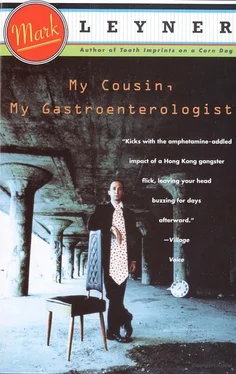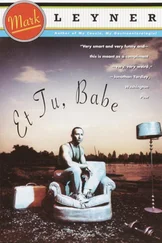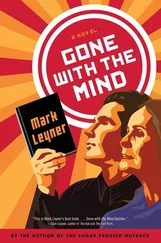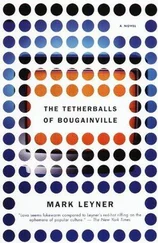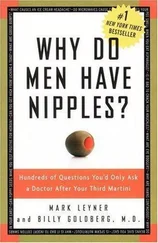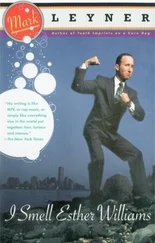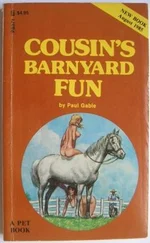When Elvis Presley, in the song "Jailhouse Rock," sang the lyrics "If you can't find a partner, grab a wooden chair," he freed a generation of young people to love furniture and, by extension, to love any inanimate object in a way that heretofore would have been strictly verboten.
Soon psychopathology replaced ethnicity as the critical demographic determinant. There were no longer Italian neighborhoods, or Cuban neighborhoods, or Irish or Greek neighborhoods. There were Anorexic neighborhoods, and Narcissistic neighborhoods, and Manic and Compulsive neighborhoods. There was no longer a Columbus Day parade or a Puerto Rico Day parade; there was an Agoraphobics Day parade. Fifth Avenue lined with police barricades, traffic diverted. But, of course, the designated route was empty, utterly desolate, because the paraders, the spectators, even the Grand Marshal himself — agoraphobics each and every one — had all stayed away, each locked within the "safety" of his or her own home.
Corruption was epidemic, achieving its absolute apotheosis when the palsied 94-year-old godfather of the Mafia family which controlled organized crime in Louisiana was actually crowned Miss Universe in Taipei, Taiwan, and presented with a ruby ring, a tiara, a Renault, $8,000 in cash, and a year's worth of cosmetics from Avon.
On any given weekday morning, an astonishing procession of well-heeled mothers with Louis Vuitton bags slung across salon-browned shoulders could be seen escorting their children who were themselves resplendently outfitted in cute Oshkosh overalls or, better yet, pricey Laura Ashley kiddie casuals. The procession wended its way to the outskirts of the city, under a dilapidated trestle, past leaking barrels of sludge laden with PCBs, where it wasn't unusual to see, among hordes of surfeited rats, the partially decomposed body of either a cult murder victim or the victim of a Colombian coke cartel assassination or simply a teenage derelict comatose atop a heap of empty Robitussin bottles. There you'd find the open-air "schoolroom" of the remarkable peripatetic teacher, Uchitel. Uchitel, who appeared to be in his late 40s, wore a caftan, loafers, and a baseball cap that said SURF'S UP. Beneath his wrap, his completely hairless body (he suffered from alopecia) smelled really good (patchouli). Who was this Uchitel? Why did he live and teach in toxic squalor? Why did these snotty, status-crazed, acquisitive mothers brave the dangerous urban outback and actually leave their precious pampered babies with this enigmatic vagrant? The legend began years ago when a wealthy woman reported her little seven-year-old son, Trevor, missing. After four days, police found him — unharmed — in the care of Uchitel, at the dismal chez-Uchitel. One week later, Trevor— who heretofore could barely concentrate long enough to comprehend a three-word sentence — was accepted into a postdoctoral high-energy physics program at Stanford. Fifteen days after his so-called abduction, Trevor was made Senior Space Policy Analyst at the Lawrence Livermore Laboratory.
It was through Uchitel that I met… Olivia.
Olivia had just returned from the badlands of Patagonia, where she'd been excavating for dinosaur fossils, to accept a position as Dean of Admissions at the Uchitel School.
I had just been fired from McDonald's for refusing to wear a kilt during product launch week for their new McHaggis sandwich. (Haggis is the traditional Scottish dish that consists of the heart, liver, and lungs of a sheep minced with suet, onions, oatmeal, and seasonings and boiled in the stomach of the animal.)
When I first met Olivia, I was a bit stilted in the way I expressed myself. I'd say things like: "Would you care for a cookie and a glass of the fluid secretions of the bovine mammary gland?"
But Olivia taught me to be insouciant.
And soon after we met, we made a pact that if we were on a plane that was crashing, we'd grab the Walkman off someone's head, we'd grab three or four little bottles of Scotch, and we'd fuck — so that we'd die in our kind of glory — in that ecstatic maelstrom of booze and rock ʼn' roll and orgasm. But remember that time when we ripped the Walkman off a Hasidic boy's head, plundered the cocktail cart and slugged down the booze, tore each other's clothes off, and then started going at it right in the aisle, and the stewardess came up to us and said: "It's only turbulence"?
We decided to take a trip to celebrate our first year together, and I asked Olivia where she'd especially like to go.
"I want to go to that asteroid where they breed the gladiator-drones," she said.
The asteroid of choice boasted a new luxury hotel and a miscellany of guest houses and bed and breakfast inns, and I asked Olivia where she'd especially like to stay.
"The new luxury hotel… 125 floors of elegant design and sumptuous appointments rise within a sleek monolith of glass and steel, surrounded by a moat of pure mercury," she said, reading from the brochure.
Perhaps it was the extraordinarily mirthful outpouring of song from a wake-up chorus of XYY-chromosome gladiator-drones outside our door that first morning at the hotel that inspired me to reach across the bed and gently place my hand on the slightly convex belly of sleeping Olivia and then put my lips to hers — her breath still pungent with the previous night's escargot, snake and eggs, aduki beans all'aglio, and midnight snack of onion bagel with cream cheese, chives, and slivered scungilli — and kiss her with unbridled ardor. Or perhaps it was just because I was absolutely crazy about her.
That night we were standing on the balcony overlooking the mercury moat and the balcony collapsed and as we fell we were insouciant, we continued to nurse our Harvey Wallbangers and say things like: "You look simply radiant tonight."
When we returned from the asteroid, we purchased a home.
We had a rather large thing in our home and one day it got a hold of Bev and Jimmy's schnauzer. It was a buttocks-shaped seat-testing machine used by airlines. We examined the house with ultraviolet light because granulated schnauzer fluoresces; we scrutinized the carpet for the white glow of schnauzer.
Bev and Jimmy were from different cultures. Bev was from a pagan, matriarchal, moon-worshipping, earth-related stone culture and Jimmy was from a Christian, patriarchal, sun-worshipping, heaven-related bronze culture. But one thing upon which they completely agreed was suing Olivia and me for the freak pulverization of the schnauzer.
Luckily for us, Bev was distracted by another lawsuit she'd recently initiated. Bev was a speech pathologist. She had a twelve-year-old patient named Bob. Bob had been in school one day standing in front of his speech class giving an extemporaneous talk. The assignment he'd been given was to describe driving on Interstate 80 through the Midwest. Suddenly Bob couldn't speak properly. He had suffered some form of spontaneous aphasia. But it wasn't total aphasia. He could speak, but only in a staccato telegraphic style. Here's how he described driving through the Midwest on Interstate 80: "Corn corn corn corn Stuckey's. Corn corn corn corn Stuckey's." His parents took him to a hospital and they performed a CAT scan and an MRI scan and a PET scan and digital subtraction angiography and they found nothing wrong. So they took him to see a speech pathologist. Bev. One day, Bob was in session with Bev when a waterbug crawled out into the middle of the floor and signaled somehow to Bob. Whether it used its legs to communicate via sign language or exuded some sort of pheromone, no one knows. But Bob was cured. He began to speak in full sentences, saying things like: "Oh yes, with respect to the Interstate… Whereas prostitution constitutes the commoditization of desire, the tollbooth exchange constitutes the eroticization of commoditized mobility — the tactile exchange of coins, a tryst in the night on the highway, albeit a surveillance, a regulation," etc. etc. Bev was charmed by the waterbug and decided to keep him as a pet. One day, Bev discovered a lump on the waterbug's thorax. She took him in to see the top entomological dermatologist in Kansas City who said that it was a benign tumor. He said he'd burn it off right there in the office using a magnifying glass and sunlight. But while he was performing the procedure, something distracted him and he momentarily lost control of the magnified sunbeam and the bug was incinerated. Bev sued for malpractice.
Читать дальше
